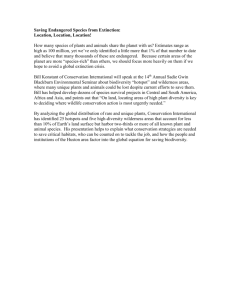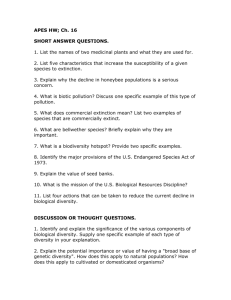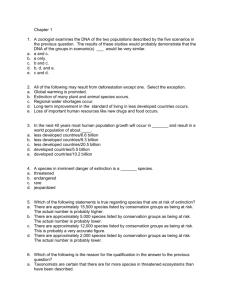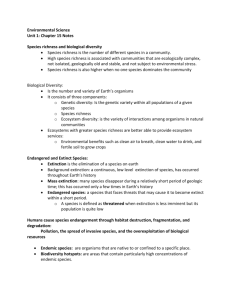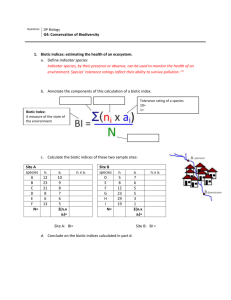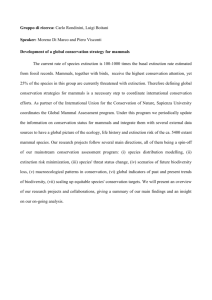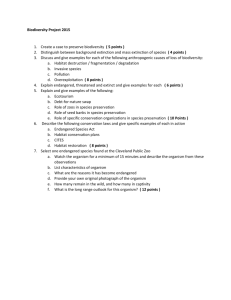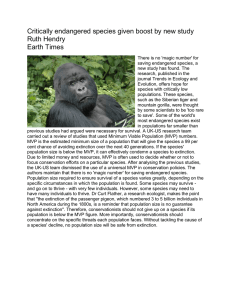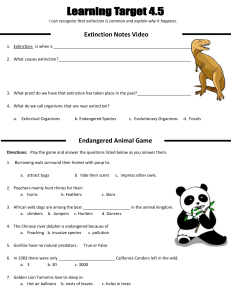final exam review guide
advertisement
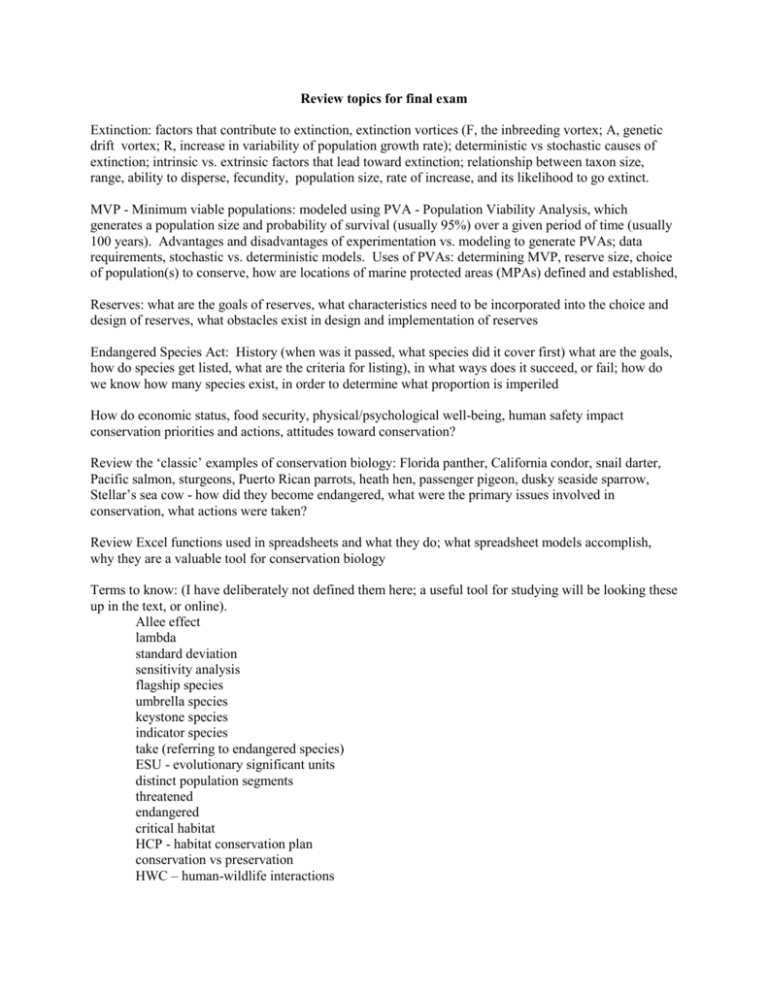
Review topics for final exam Extinction: factors that contribute to extinction, extinction vortices (F, the inbreeding vortex; A, genetic drift vortex; R, increase in variability of population growth rate); deterministic vs stochastic causes of extinction; intrinsic vs. extrinsic factors that lead toward extinction; relationship between taxon size, range, ability to disperse, fecundity, population size, rate of increase, and its likelihood to go extinct. MVP - Minimum viable populations: modeled using PVA - Population Viability Analysis, which generates a population size and probability of survival (usually 95%) over a given period of time (usually 100 years). Advantages and disadvantages of experimentation vs. modeling to generate PVAs; data requirements, stochastic vs. deterministic models. Uses of PVAs: determining MVP, reserve size, choice of population(s) to conserve, how are locations of marine protected areas (MPAs) defined and established, Reserves: what are the goals of reserves, what characteristics need to be incorporated into the choice and design of reserves, what obstacles exist in design and implementation of reserves Endangered Species Act: History (when was it passed, what species did it cover first) what are the goals, how do species get listed, what are the criteria for listing), in what ways does it succeed, or fail; how do we know how many species exist, in order to determine what proportion is imperiled How do economic status, food security, physical/psychological well-being, human safety impact conservation priorities and actions, attitudes toward conservation? Review the ‘classic’ examples of conservation biology: Florida panther, California condor, snail darter, Pacific salmon, sturgeons, Puerto Rican parrots, heath hen, passenger pigeon, dusky seaside sparrow, Stellar’s sea cow - how did they become endangered, what were the primary issues involved in conservation, what actions were taken? Review Excel functions used in spreadsheets and what they do; what spreadsheet models accomplish, why they are a valuable tool for conservation biology Terms to know: (I have deliberately not defined them here; a useful tool for studying will be looking these up in the text, or online). Allee effect lambda standard deviation sensitivity analysis flagship species umbrella species keystone species indicator species take (referring to endangered species) ESU - evolutionary significant units distinct population segments threatened endangered critical habitat HCP - habitat conservation plan conservation vs preservation HWC – human-wildlife interactions
